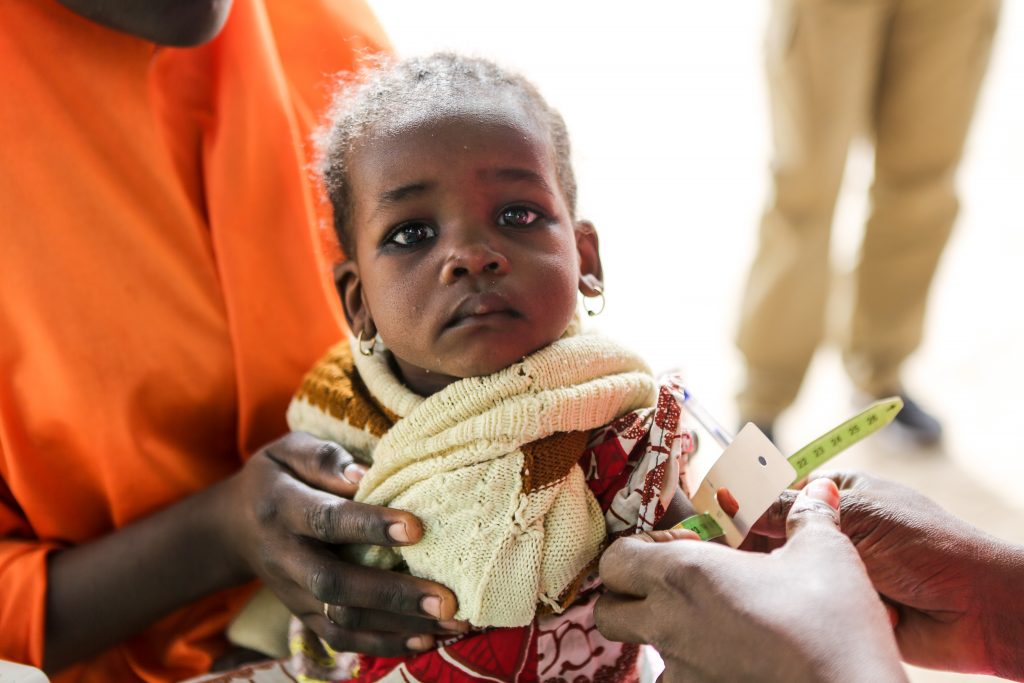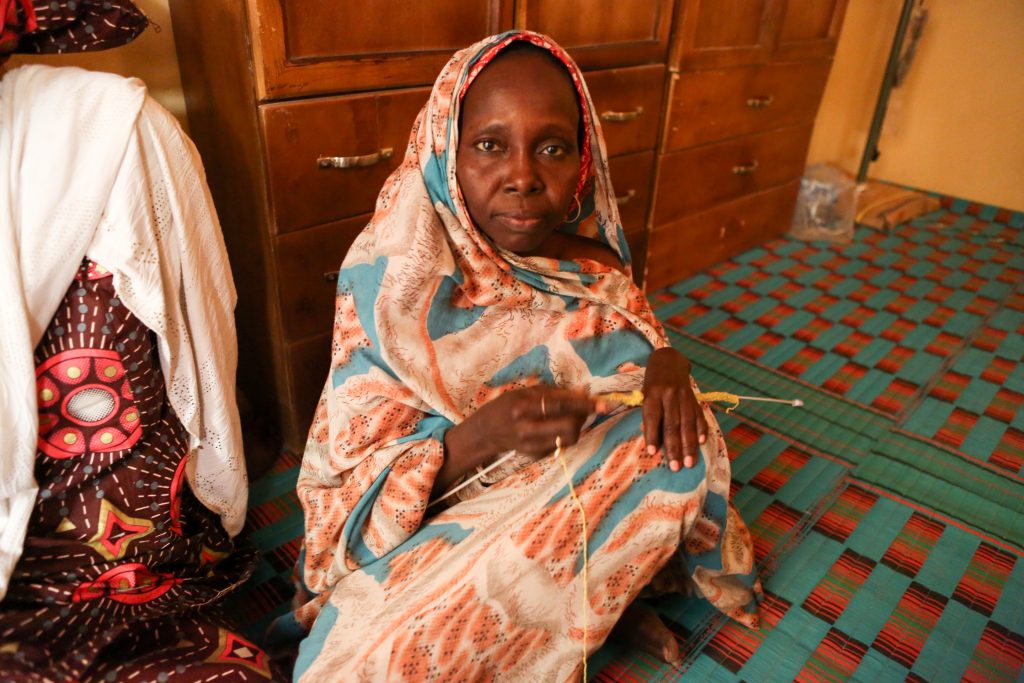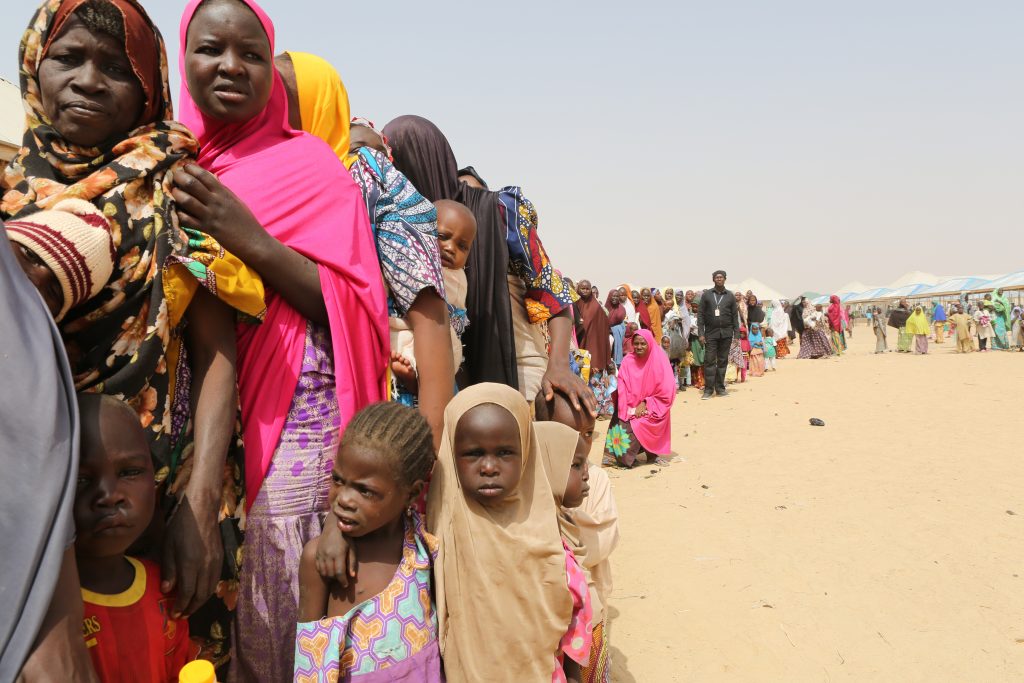As our plane landed in Borno state in northeastern Nigeria, I wondered what lay before us. Since the Boko Haram insurgency began in 2009, the region we were visiting has been wracked by violence, and has seen the highest number of internally displaced people in the country– an estimated 1.7 million. It’s still considered one of the most dangerous places in Nigeria.
Yet despite the unspeakable violence and terror Nigerians have faced, we could see immediately that they are working hard to rebuild their lives and care for their families.
International Medical Corps has been on the ground in Nigeria for five years, providing health, nutrition, water and sanitation services, as well as gender-based violence prevention and treatment.
Our first stop was to a health center where we run nutritional programs. The threat of famine still hangs over the camps – children, as well as women who are pregnant or breast feeding are most at risk of severe malnutrition. At nutrition stabilization centers, patients receive supplemental food and medical care to treat and prevent malnutrition. While we are now, finally, seeing a decline in the overall rates of malnutrition, we have to remain vigilant, as drought, failed harvests or increased violence could escalate the crisis once again.

Next, we visited a center where women who have suffered violence – against themselves and their families – receive health care, psychosocial support and vocational training in a supportive environment.
One woman I spoke with said that being in the women’s group had brought her back from the brink of despair. In her words: “If it weren’t for this place, I couldn’t have gone on living.” She had lost her husband, her home and could barely care for her young children. But, she said, being with women just like her helped her feel supported emotionally and physically. She told us that making items to sell with her women’s group helps her earn a living and feed her children. With our help, she said, she was able to put her life back together.

8.5 million people in northeastern Nigeria require humanitarian assistance, and we will continue to provide medical care and training to local communities as long as we are needed. There is so much more work to be done, but what I saw in the camps gave me hope that the resilient people in this region will recover and make a better life for their families and communities. We will do everything we can to help them heal.
